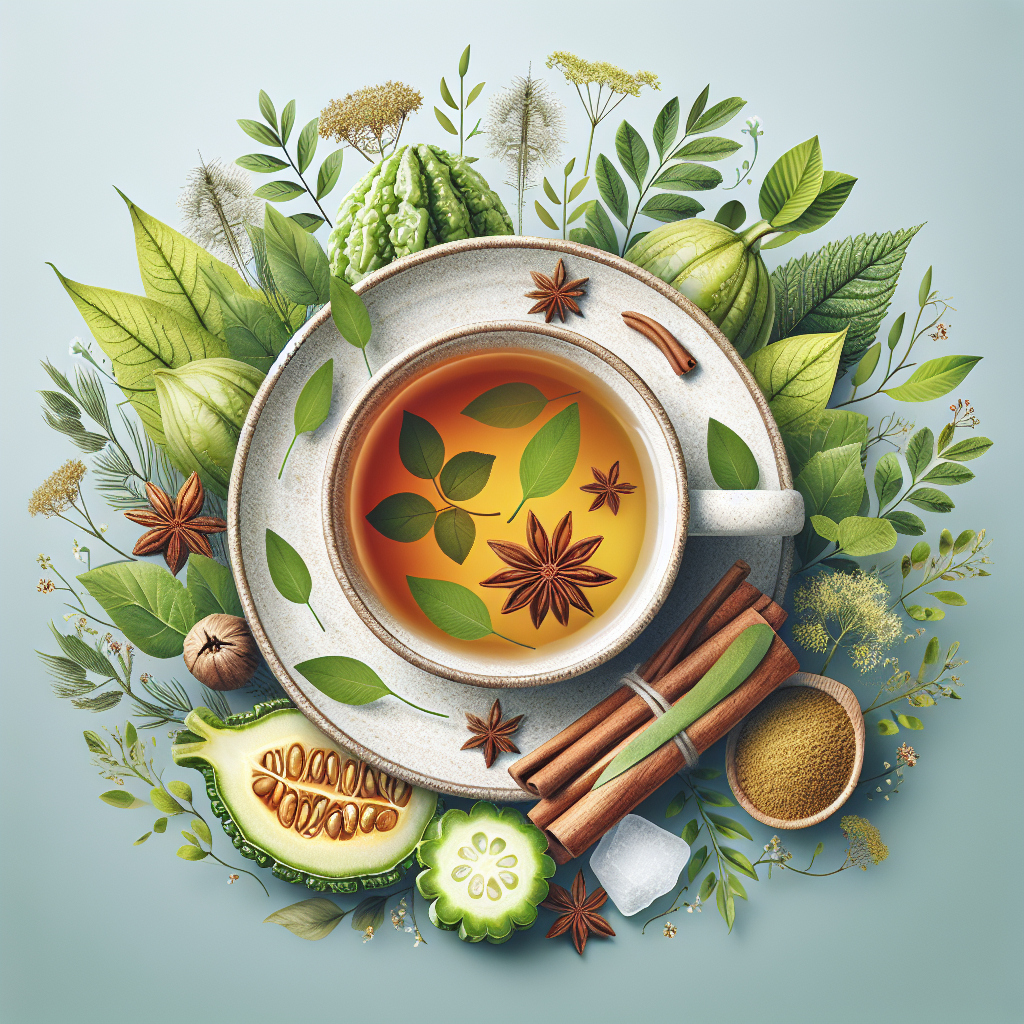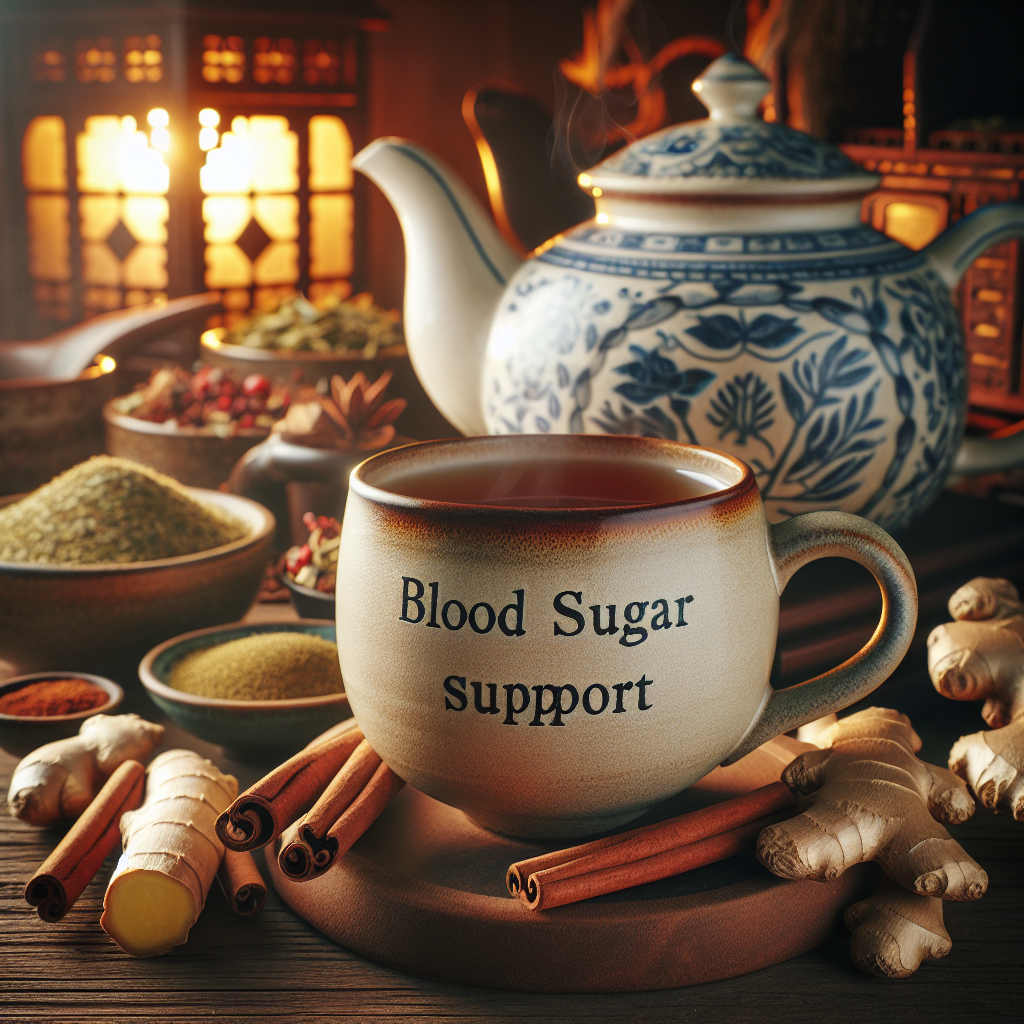A Smart Guide to Supporting Blood Sugar with Traditional Chinese Herbs
Struggling with blood sugar balance? Discover how Chinese herbs like Huang Qi (Astragalus), Shan Zha (Hawthorn Berry), and more support healthy glucose levels naturally. This guide explains what works, why it works, and how to choose the right formulas—without hype.
 Balancing blood sugar isn’t just about carbs and calories. In Traditional Chinese Medicine (TCM), it’s about nourishing your Qi, supporting Spleen and Liver health, and resolving hidden imbalances that disrupt glucose metabolism.
Balancing blood sugar isn’t just about carbs and calories. In Traditional Chinese Medicine (TCM), it’s about nourishing your Qi, supporting Spleen and Liver health, and resolving hidden imbalances that disrupt glucose metabolism.
If you’re navigating blood sugar concerns, you’ve likely tried the usual advice—but what if your body needs something deeper? Chinese herbs may offer a time-tested, holistic solution. This guide explores how specific Chinese herbs can support healthy blood sugar, digestion, energy, and mood—naturally.
Whether you’re newly diagnosed or have years of experience managing blood sugar, this page was made to help you find answers and real herbal support you can trust.
Why Blood Sugar Balance Is Different in Traditional Chinese Medicine
In Traditional Chinese Medicine (TCM), blood sugar issues aren’t treated as a single disease like "diabetes." Instead, they are seen as signs of deeper internal imbalances—each requiring its own strategy. TCM doesn't treat disease names; it treats patterns of disharmony within the body.
Here’s how TCM reframes the issue:
1. Spleen Qi Deficiency
When digestion is weak, the Spleen can’t transform food into usable energy (Qi). This leads to:
-
Poor glucose metabolism
-
Fatigue, sugar cravings, and foggy thinking
-
Damp buildup that contributes to blood sugar swings
2. Liver Qi Stagnation
Stress and emotional tension can block the smooth flow of Qi. This may result in:
-
Disrupted hormonal signaling
-
Emotional eating and blood sugar spikes
-
Irritability, PMS, and mood-related glucose issues
3. Yin Deficiency with Internal Heat
When Yin (the body’s cooling, moistening force) is depleted:
-
Internal heat rises, drying out tissues
-
Thirst, night sweats, and heat after meals emerge
-
Glucose regulation becomes more difficult
Why This Matters
TCM recognizes that two people with the same blood sugar numbers may need completely different herbal formulas. One may need moistening herbs like Yu Zhu or Sheng Di Huang. Another might require heat-clearing herbs like Zhi Mu or phlegm-transforming herbs like Cang Zhu.
That’s because TCM focuses on root-cause correction, not symptom suppression.
✅ This is why Chinese herbalism doesn’t rely on a one-size-fits-all formula. Instead, it tailors the remedy based on the individual’s underlying pattern—restoring true balance and supporting the body’s natural ability to regulate blood sugar from the inside out.
Which TCM Pattern Might Be Affecting Your Blood Sugar?
This quick guide can help you understand which internal imbalance may be at the root of your blood sugar issues—according to Traditional Chinese Medicine (TCM).
Choose the statements that feel most true for you. Then check your result below.
Group A – The Tired & Foggy Type (Spleen Qi Deficiency)
-
I often feel tired after eating
-
I crave sweets or carbs, especially in the afternoon
-
I feel heavy or bloated, even without overeating
-
My stools tend to be loose or soft
-
I get foggy-headed after meals
Group B – The Stressed & Irritable Type (Liver Qi Stagnation)
-
I feel tense, especially in my neck, shoulders, or chest
-
My mood is up and down—especially under stress
-
I get cravings when I’m emotional or upset
-
I notice PMS, headaches, or tightness in my ribcage area
-
My blood sugar readings seem to fluctuate with stress
Group C – The Thirsty & Dry Type (Yin Deficiency with Internal Heat)
-
I’m often thirsty, especially in the evening or at night
-
I wake up hot, or sweat during sleep
-
I feel dry (skin, throat, eyes, or digestion)
-
I get irritable or restless after eating
-
My sleep is light or disturbed
Results & Herbal Support (Based on TCM Theory Only)
Mostly A’s?
Your pattern may resemble Spleen Qi Deficiency.
This is often supported in TCM with herbs that strengthen digestion and help transform dampness.
Examples include:
-
Huang Qi (Astragalus Root)
-
Dang Shen (Codonopsis)
-
Bai Zhu (Atractylodes Macrocephala)
Mostly B’s?
You may align with Liver Qi Stagnation.
Herbs in this category aim to regulate energy flow and ease emotional tension.
Examples include:
-
Chai Hu (Bupleurum)
-
Xiang Fu (Cyperus)
-
Dan Shen (Salvia Root)
Mostly C’s?
Your pattern may reflect Yin Deficiency with Internal Heat.
These cases often benefit from moistening, cooling herbs that nourish Yin.
Examples include:
-
Yu Zhu (Polygonatum)
-
Sheng Di Huang (Raw Rehmannia)
-
Mai Men Dong (Ophiopogon)
Important Note:
This quiz is for educational purposes only and not intended to diagnose, treat, or prevent any disease. Always consult a qualified practitioner for individualized recommendations.
TOP CHINESE HERBS FOR BLOOD SUGAR SUPPORT
1. Huang Qi (Astragalus Root)
-
Use: Tonifies Spleen Qi, supports healthy digestion, and stabilizes energy
-
Why It Works: Astragalus has been studied for its adaptogenic effects and its support of glucose metabolism. It’s often used in formulas to support insulin sensitivity and Spleen function.
2. Shan Zha (Hawthorn Berry)
-
Use: Supports digestion of fats and proteins, promotes blood circulation
-
Why It Works: Helps reduce post-meal stagnation and supports cardiovascular health—especially important in metabolic concerns.
3. Di Huang (Rehmannia Root)
-
Use: Nourishes Yin, cools heat, and supports Kidney function
-
Why It Works: Often used in diabetes formulas for dry mouth, thirst, and Yin deficiency signs.
4. Zhi Mu (Anemarrhena Rhizome)
-
Use: Clears heat and nourishes Yin
-
Why It Works: Included in formulas when dryness and heat signs appear alongside elevated blood sugar.
5. Tian Hua Fen (Trichosanthes Root)
-
Use: Clears heat, generates fluids, and helps relieve thirst
-
Why It Works: This is a classic herb for dry throat, thirst, and heat conditions in blood sugar imbalances.
6. Mai Men Dong (Ophiopogon Root)
-
Use: Moistens dryness in the Lungs and Stomach
-
Why It Works: When there’s irritability, fatigue, and dryness, this herb helps support Yin and calm agitation.
7. Fu Ling (Poria Mushroom)
-
Use: Strengthens the Spleen, drains dampness, calms the mind
-
Why It Works: Dampness is a root cause of sluggish digestion and weight gain. Fu Ling helps gently support fluid metabolism.
| TCM Pattern | Herb Examples | Product Forms |
|---|---|---|
| Spleen Qi Deficiency | Huang Qi, Bai Zhu, Dang Shen | Tea, Capsule |
| Liver Qi Stagnation | Chai Hu, Xiang Fu | Teapills, Extract |
| Yin Deficiency | Yu Zhu, Sheng Di Huang | Soup, Decoction |
WHO SHOULD CONSIDER THESE HERBS
These Chinese herbs may be supportive for those experiencing:
-
Blood sugar imbalances without strong pharmaceutical intervention
-
Yin deficiency signs (thirst, dry mouth, irritability)
-
Digestive issues like bloating or fatigue after meals
-
Post-viral fatigue or stress-induced blood sugar fluctuations
Always consult a licensed practitioner if you are on medication or managing a chronic condition.
What Our Customers Say
I didn’t realize my sugar swings were tied to fatigue after meals. Supporting my digestion made a big difference.” —C.R. Eastern WA
WHO SHOULD NOT USE THESE HERBS
Avoid or use with guidance if you have:
-
Very low blood sugar or use insulin
-
Cold and weak digestion (in the case of cooling herbs like Tian Hua Fen or Zhi Mu)
-
Pregnancy (some herbs may not be appropriate)
 HOW TO USE THESE HERBS
HOW TO USE THESE HERBS
-
Decoction: Use raw herbs to make a strong tea. Common in traditional use.
-
Powdered Extract: Most convenient and concentrated. Add to hot water or smoothies.
-
Teapills: Best for daily support over time. Easy to carry and dose.
-
Formulas: Many classic TCM formulas combine multiple herbs above, like Yu Quan Wan or Xiao Ke Fang.
FAQs
Is this a replacement for diabetes medication?
No. These herbs are not intended to diagnose, treat, or cure disease. They may offer support alongside a healthcare provider’s plan.
How long do herbs take to work?
Herbs build over time. Some notice improvement within a few days, others after several weeks.
Can I use these herbs long term?
Yes, with practitioner guidance. Many of these herbs are traditionally used for ongoing support.
Need help choosing the right formula?
Our herb specialists can match the right tea or extract to your body pattern.
Contact Us »
Scientific Research Supporting Chinese Herbs for Blood Sugar
Astragalus Root (Huang Qi, Astragalus membranaceus)
-
Supports insulin sensitivity and pancreatic function
A 2014 study found that Astragalus polysaccharides helped reduce blood sugar and protected pancreatic β-cells in diabetic rats.
➤ PMC4007496 – Astragalus polysaccharide effects -
Combined herbal formulas show synergistic glucose-lowering effects
When paired with Hawthorn flavonoids, Astragalus demonstrated enhanced blood sugar control in animal models.
➤ MMR2016 – Synergistic hypoglycemic effect
Polygonatum odoratum (Yu Zhu)
-
Improves glucose metabolism and insulin secretion
Total flavonoids from Yu Zhu significantly reduced fasting glucose and improved glucose tolerance in diabetic rats.
➤ ResearchGate – Yu Zhu flavonoid study -
Activates AMPK, a key regulator of metabolic health
Yu Zhu extracts may mimic the effects of exercise and dietary interventions by activating AMPK signaling.
➤ PMC9449862 – Yu Zhu & AMPK activation
Classic Chinese Herbal Combinations
-
Multicomponent formulas enhance results
TCM formulas that include Astragalus, Polygonatum, and other Qi- or Yin-tonics (e.g., Qiliqiangxin) support blood sugar and cardiovascular balance in metabolic models.
➤ Wikipedia – Qiliqiangxin formula
➤ PubMed – Herbal formula for metabolic regulation

